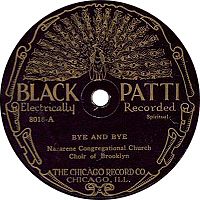
Lemon Henry "Blind Lemon" Jefferson was an American blues and gospel singer-songwriter and musician. He was one of the most popular and successful blues singers of the 1920s and has been called the "Father of the Texas Blues".
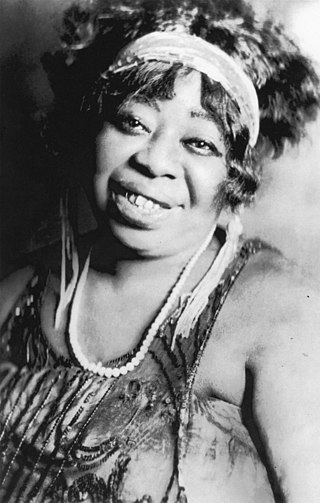
Gertrude "Ma" Rainey was an American blues singer and influential early-blues recording artist. Dubbed the "Mother of the Blues", she bridged earlier vaudeville and the authentic expression of southern blues, influencing a generation of blues singers. Rainey was known for her powerful vocal abilities, energetic disposition, majestic phrasing, and a "moaning" style of singing. Her qualities are present and most evident in her early recordings "Bo-Weevil Blues" and "Moonshine Blues".

Delta blues is one of the earliest-known styles of blues. It originated in the Mississippi Delta and is regarded as a regional variant of country blues. Guitar and harmonica are its dominant instruments; slide guitar is a hallmark of the style. Vocal styles in Delta blues range from introspective and soulful to passionate and fiery.
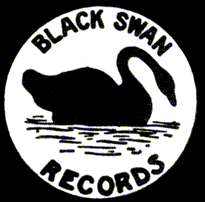
Black Swan Records was an American jazz and blues record label founded in 1921 in Harlem, New York. It was the first widely distributed label to be owned, operated, and marketed to African Americans. Founded by Harry Pace with W.C. Handy, Black Swan Records was established to give African Americans more creative liberties. Eighteen months earlier, in 1919, the Broome Special Phonograph Records was the earliest label owned and operated by African American George W. Broome in Medford, Massachusetts, featuring Black classical musicians including Harry T. Burleigh and Edward Boatner. Black Swan was revived in the 1990s for CD reissues of its historic jazz and blues recordings.
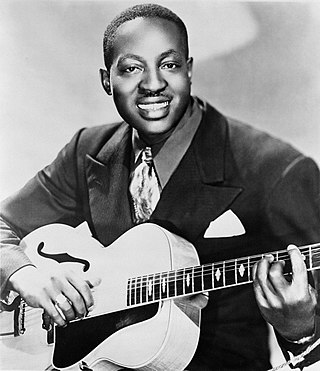
Big Bill Broonzy was an American blues singer, songwriter, and guitarist. His career began in the 1920s, when he played country music to mostly African-American audiences. In the 1930s and 1940s, he navigated a change in style to a more urban blues sound popular with working-class black audiences. In the 1950s, a return to his traditional folk-blues roots made him one of the leading figures of the emerging American folk music revival and an international star. His long and varied career marks him as one of the key figures in the development of blues music in the 20th century.

Paramount Records was an American record label known for its recordings of jazz and blues in the 1920s and early 1930s, including such artists as Ma Rainey, Tommy Johnson and Blind Lemon Jefferson.
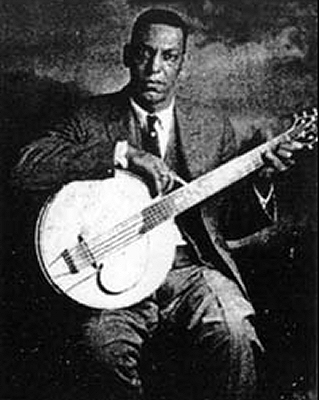
William Henry "Papa Charlie" Jackson was an early American bluesman and songster who accompanied himself with a banjo guitar, a guitar, or a ukulele. His recording career began in 1924. Much of his life remains a mystery, but his draft card lists his birthplace as New Orleans, Louisiana, and his death certificate states that he died in Chicago, Illinois, on May 7, 1938.

Matilda Sissieretta Joyner Jones was an American soprano. She sometimes was called "The Black Patti" in reference to Italian opera singer Adelina Patti. Jones' repertoire included grand opera, light opera, and popular music. Trained at the Providence Academy of Music and the New England Conservatory of Music, Jones made her New York City debut in 1888 at Steinway Hall, and four years later she performed at the White House for President Benjamin Harrison. She sang for four consecutive presidents and the British royal family, and was met with international success. Besides the United States and the West Indies, Jones toured in South America, Australia, India, southern Africa, and Europe.
King Solomon Hill is the name assigned to a blues singer and guitarist who recorded a handful of songs in 1932. His unique guitar and voice combined to produce a sound that has been described as haunting. After much speculation and dispute, he has been identified as Joe Holmes, a self-taught guitarist from Mississippi.

Hudson Whittaker, known as Tampa Red, was an American Chicago blues musician.

Cora "Lovie" Austin was an American Chicago bandleader, session musician, composer, singer, and arranger during the 1920s classic blues era. She and Lil Hardin Armstrong are often ranked as two of the best female jazz blues piano players of the period.

Race records is a term for 78-rpm phonograph records marketed to African Americans between the 1920s and 1940s. They primarily contained race music, comprising various African-American musical genres, blues, jazz, and gospel music, rhythm and blues and also comedy. These records were, at the time, the majority of commercial recordings of African American artists in the U.S., and few African American artists were marketed to white audiences. Race records were marketed by Okeh Records, Emerson Records, Vocalion Records, Victor Talking Machine Company, Paramount Records, and several other companies.

Jay Mayo "Ink" Williams was a pioneering African-American producer of recorded blues music. Some historians have claimed that Ink Williams earned his nickname by his ability to get the signatures of talented African-American musicians on recording contracts, but in fact it was a racial sobriquet from his football days, when he was a rare Black player on white college and professional teams. He was the most successful "race records" producer of his time, breaking all previous records for sales in this genre.
Florence Cole Talbert-McCleave, also known as Madame Florence Cole-Talbert, was an American operatic soprano, music educator, and musician. Called "The First Lady in Grand Opera" by the National Negro Opera Guild, she was one of the first African American women and black opera artists performing abroad who received success and critical acclaim in classical and operatic music in the 20th century. Through her career as a singer, a music educator, and an active member of the National Association of Negro Musicians, she became a legendary figure within the African American music community, also earning the titles of "Queen of the Concert Stage" and "Our Divine Florence."
James F. Wade was an American jazz trumpeter and bandleader.

Chicago, Illinois is a major center for music in the midwestern United States where distinctive forms of blues, and house music, a genre of electronic dance music, were developed.
William Ezell, was an American blues, jazz, ragtime and boogie-woogie pianist and occasional singer, who was also billed as Will Ezell. He regularly contributed to recordings made by Paramount Records in the late 1920s and early 1930s. Ezell was noted by the music journalist Bruce Eder as "a technically brilliant pianist, showing the strong influence of jazz as well as blues in his work".
Arnold Burke "Doc" Wiley was an American ragtime, blues and rhythm and blues musician, actor and political activist from the 1910s to the 1960s. Although Wiley may not have scored any notable hits during his long career, he was notable both for the sheer length of that career, which stretched from the ragtime era to the early years of rock and roll, and for his ability to constantly adapt his style to these changing tastes.

"That Black Snake Moan" is a song written and recorded by American country blues musician Blind Lemon Jefferson. Inspired by singer Victoria Spivey's "Black Snake Blues", the song was released on Paramount Records in 1926, and has since become recognized as a signature composition which exemplifies Jefferson's unconventional melodic style and utilization of double entendres. The song was re-recorded a year later as "Black Snake Moan" for Okeh Records, and both versions have remained accessible through the availability of several compilation albums.
Mozelle Alderson was an American classic female blues singer. She recorded a small number of tracks for Black Patti Records in 1927 and for Brunswick Records In 1930. Her most regular pianist was Judson Brown. She was a one-time vocalist for the Famous Hokum Boys in 1930 and toured and recorded as a backing vocalist for other blues artists. Alderson used a number of aliases, possibly including Kansas City Kitty, Hannah May, Thelma Holmes, Mae Belle Lee, and Jane Lucas.
